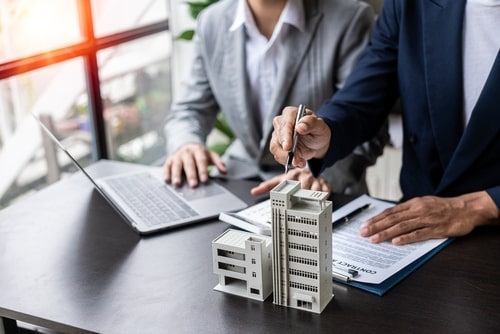Contact Our Firm
The use of the Internet or this form for communication with the firm or any individual member of the firm does not establish an attorney-client relationship. Confidential or time-sensitive information should not be sent through this form.
I have read and understand the Disclaimer and Privacy Policy.

Zoning Laws and Property Development in Florida
 Zoning laws play a crucial role in shaping the landscape of property development in Florida. The regulations can either facilitate or hinder the growth and progress of our communities. A Florida lawyer can help you explore the various ways in which zoning laws impact property development.
Zoning laws play a crucial role in shaping the landscape of property development in Florida. The regulations can either facilitate or hinder the growth and progress of our communities. A Florida lawyer can help you explore the various ways in which zoning laws impact property development.
Understanding Zoning Laws in Florida
Zoning laws are local ordinances that govern the use and development of land within a specific area. In Florida, municipalities and counties establish laws to ensure land use aligns with the community's goals and values. Zoning laws typically divide land into different districts, such as residential, commercial, industrial, or mixed-use, and set forth specific requirements for each district.
Promoting Orderly Growth and Development
One of the primary purposes of zoning laws is to promote orderly growth and development. Zoning laws help prevent haphazard and incompatible development patterns by designating specific areas for different land uses. For example, a residential zone will typically prohibit the construction of industrial facilities, which can generate noise, pollution, and traffic that may be detrimental to the quality of life in a neighborhood.
Protecting Property Values and Neighborhood Character
Zoning laws also play a vital role in protecting property values and preserving the character of neighborhoods. By regulating the types of land uses allowed in a particular area, zoning laws help maintain a community's integrity and aesthetics. This, in turn, can positively impact property values, as buyers are often willing to pay a premium for homes located in well-maintained and cohesive neighborhoods.
The Zoning Process for Developers
For property developers in Florida, the zoning process can be a complex and time-consuming endeavor. Before breaking ground on a project, developers must ensure that their proposed land use complies with the applicable zoning regulations. This often involves submitting a zoning application, attending public hearings, and working closely with local government officials to secure the necessary approvals.
Zoning Variances and Special Exceptions
In some cases, a proposed development may not strictly adhere to the zoning regulations in place. However, Florida law allows for flexibility through the use of zoning variances and notable exceptions. A variance is a deviation from the literal requirements of a zoning ordinance, such as building height or setback requirements, which may be granted if the property owner can demonstrate a hardship. A special exception, on the other hand, is a use that is permitted in a particular zoning district, subject to certain conditions and approval by the local government.
The Future of Zoning in Florida
As Florida continues to experience rapid population growth and urbanization, the role of zoning laws in shaping property development will become increasingly important. In recent years, there has been a growing trend toward more flexible and innovative zoning approaches, such as form-based codes and mixed-use developments. These approaches aim to create more vibrant, walkable, and sustainable communities while respecting the need for orderly growth and development.
Contact an Oakland Park, FL Real Estate Attorney
Zoning regulations play a crucial role in the development of property in Florida. A Broward County, FL real estate lawyer can help you understand your business venture's zoning so it is less overwhelming. Call The Elliot Legal Group, P.A. at 754-332-2101 for a private consultation.















